► Traditional hybrid cars rated
► More than mild, don’t need a plug
► A good compromise?
There’s probably a temptation to think of regular or full hybrid cars as a bit old fashioned. An emerging variation of hybrid cars, known as self-charging hybrids – meaning you don’t have to plug them into the mains – have much smaller batteries and much shorter electric-only driving ranges than fancier plug-in hybrids. But does this actually mean they’re outmoded?
We don’t think so. Self-charging hybrids have smaller batteries and that means lower costs and reduced weight. In contrast the latest conventional hybrid systems switch over to electric power at every opportunity they get, meaning they run their internal combustion engines a remarkably small percentage of the time. This makes them much more efficient than mild-hybrid cars in the process.
Toyota is traditionally king in this area of the market – but plenty of other carmakers are also still building effective conventional hybrid models. Here we’ve picked 10 of the best self-charging hybrids on sale in the UK. And if you want a comparison of hybrid vs plug-in hybrid vs electric powertrains, read our test.
The best self-charging hybrids
Honda Civic
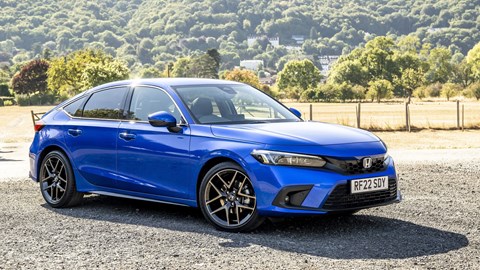
While the latest Honda Civic may not look big news from the outside, its clever e:HEV hybrid system uses a bespoke 2.0-litre petrol that spends most of its time simply fuelling the electric motor. Making it refined and efficient yet capable of delivering a convincing 181bhp when required.
Add to that a delightfully well-crafted cabin and sophisticated ride quality with decent handling, which speaks of hundreds of honing test miles, and for us it’s the total package. Price: from £30,495
Read our Honda Civic review
Toyota Corolla
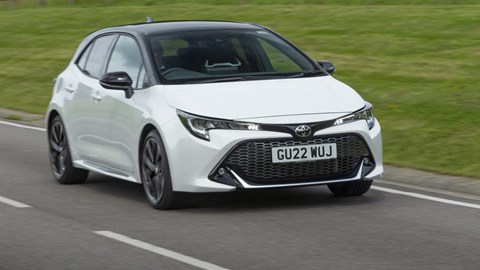
The Toyota Corolla now sports a fifth-generation hybrid system – which is intended to be better to drive and more efficient. It’s more responsive under your right foot but also so eager to opt for electric propulsion it’ll have the engine switched off something like 70 per cent of the time in urban driving.
A thoroughly-well engineered and inexpensive to run car built right here in the UK. Price: from £30,210
Read our Toyota Corolla review
Lexus NX 350h
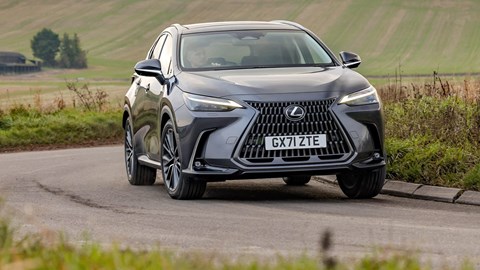
Toyota’s premium brand makes a lot of hybrids, but the Lexus NX mid-size SUV is the one we’d pick. It’s just a really well-rounded package – nice enough to drive, compact enough to not be a pain around town, spacious enough for adults, comfortable enough for lengthy journeys.
It’ll top 40mpg without too much effort, and the infotainment system no longer makes you want to murder. Bonus. Price: from £42,760
Read our Lexus NX review
Ford S-Max
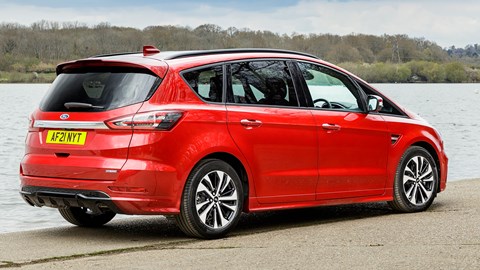
Bet you thought the Ford S-Max was already dead. But no, you can still buy Ford’s funkiest of people carriers, and it is now exclusively available as a 2.5-litre petrol hybrid. The combination offers plenty of passenger space and a real depth to the driving experience that you won’t find among the few remaining rivals.
Need something more on-trend? Try Ford Kuga with the same self-charging tech. Price: from £38,540
Read our Ford S-Max review
Toyota Yaris Cross
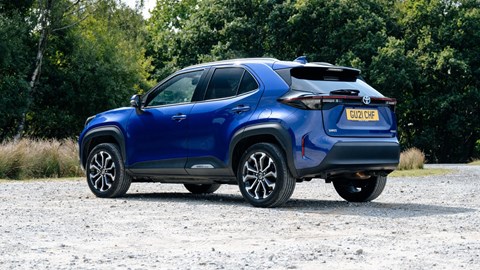
Rather that pretending to be a dinky SUV, the Toyota Yaris Cross actually is one – meaning its relationship to the regular Yaris is more like that of the Ford Puma to the Ford Fiesta.
You still probably won’t buy one for thrills, but the size-to-interior-space ratio very positive and the hybrid powertrain can top a 50mpg in the real world without any effort from the driver. Price: from £24,840
Read our Toyota Yaris Cross review
Honda Jazz
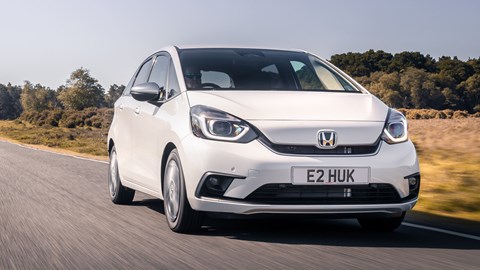
If you need a small car with a lot of space inside, the Honda Jazz is a great place to start. Clever Magic Seats and a 1.5-litre e:HEV hybrid engine give you practicality and efficiency in a very compact package, and we promise you’ll be pleasantly surprised about how perky it is to drive.
Need a little more personality? Then there’s always Crosstar version that pretends to be a dinky SUV. Price: from £21,295
Read our Honda Jazz review
Kia Sorento Hybrid
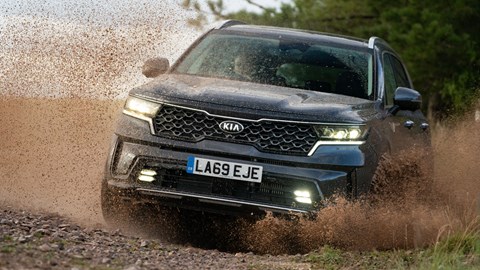
Need something a little bigger than the Tucson? Then the closely related Hyundai Sante Fe and Kia Sorento could be just the ticket.
We’ve opted for this rather handsome Kia, since it offers plenty of space for up to seven occupants, four-wheel drive as standard and a huge roster of fitted equipment – but if you want to down-spec you can get a Santa Fe considerably cheaper. Price: from £50,995
Read our Kia Sorento review
Hyundai Tucson Hybrid
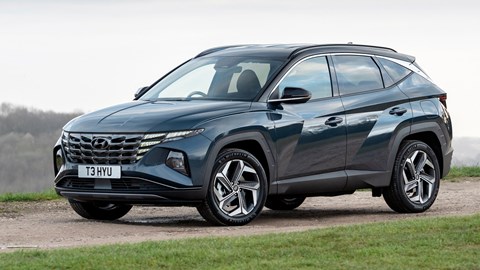
You can get a Hyundai Tucson with any flavour of hybrid system you prefer, as the firm offers not only this self-charging model but also mild hybrid and plug-in hybrid technology as well.
All come with those eye-catching looks, some clever tech and a handy five-year unlimited mileage warranty, but the self-charger occupies some excellent middle ground thanks to its punchy 227bhp. Price: from £34,620
Read our Hyundai Tucson review
Mazda 2 Hybrid
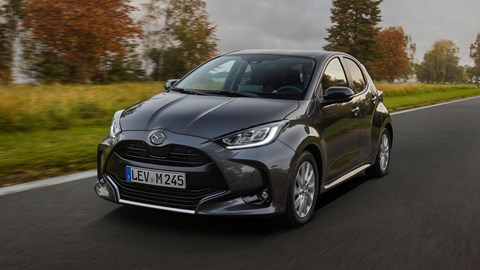
Ooh. The first Japanese car on this list isn’t a Toyota? Oh. Wait a minute – the hybrid version of the Mazda 2 isn’t a slinky homegrown Skyactiv number but a slightly cheaper Toyota Yaris with a Mazda badge on it.
Cross-shop both brands for the best deal (keeping Toyota’s 10-year warranty in mind) and expect properly impressive real-world mpg, either way. These are neat and effective small cars. Price: from £21,820
Read our Mazda 2 Hybrid info
Renault Austral

Anyone who’s experienced a Renault Arkana hybrid might be shocked to see its big brother make it onto this list, but in the Renault Austral, the French firm’s full hybrid system has finally come of age.
While it’s still a terrifically complicated arrangement, changing the wheezy old 1.6 for a modern 1.2-litre turbo has made a world of difference, delivering impressive power (196bhp) and 60+mpg. Price: from £35,000 (tbc)
Read our Renault Austral review
Self-charging hybrids to avoid
Subaru is yet to show us a self-charging hybrid we could love, and the Suzuki Vitara hybrid isn’t a barrel of laughs, either – which is a shame as the Vitara is otherwise quite a likable machine. And don’t let that put you off the Suzuki Swace, for that’s a Corolla in disguise and entirely recommendable as a result.
How do self-charging hybrids work?
A self-charging works using the same principles as any other hybrid car, but the way its hybrid power is implemented is a little different. Unlike plug-in hybrid cars, self-charging hybrids use more compact batteries, and can’t be topped up from an external source. Instead, they recycle energy usually lost in braking and coasting. This energy then assists the ICE under acceleration, with an uptick efficiency and fuel economy. It’s also used in low-speed, stop-start traffic.
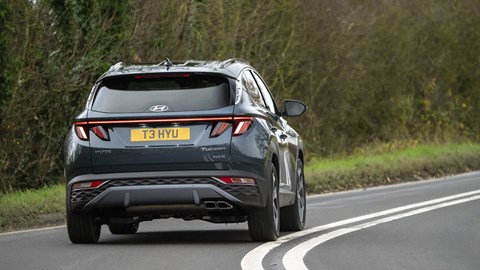
Are self-charging hybrids any good?
There’s a good amount of debate around self-charging hybrid cars, as many believe they don’t offer enough compared to plug-in hybrid cars. However, like anything, self-charging hybrids can work well, if you put them in the right environment and use them in the right way. If you’re happy with a small uptick in economy, and you don’t want the fuss of plugging into charger every so often, a self-charging hybrid should be your first port of cool. If, however, you want to use EV-only power more often and you’re okay with charging, then you should be looking at a more conventional hybrid.
Which manufacturers make self-charging cars?
Self-charging hybrids aren’t as common as plug-in or mild hybrids, but they are offered by several brands. Toyota and Lexus both offer self-charging model, and so does the Hyundai Motor Group – so Hyundai and Kia. Honda, Toyota and Mazda do too – outside of Asia your best bet is Ford and Renault.